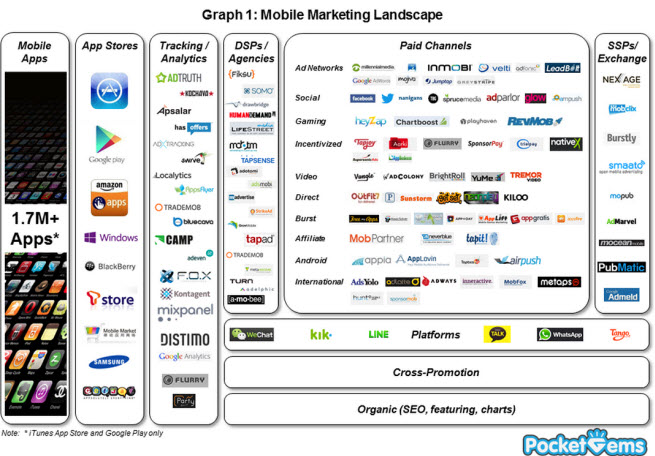Since I’ve been writing about games for 19 years and I’ve been running our GamesBeat conference for seven years, I’m often asked about the state of the game industry. The true answer is that I have no clue. Gaming is vast. It contains multitudes of markets and contradictions within itself. But the only time when I feel like I’ve got my finger on the pulse is at our annual GamesBeat conference, which takes place this year at the Grand Hyatt Union Square hotel in San Francisco on October 12 and October 13.
Under theme of the war among the clans in “A Game of Thrones,” our speakers will assert their views of the state of gaming in 20 minute bursts. By the end of the two-day event, we’ll hear from 104 leaders of the game industry about what is most important on the road ahead. It’s an efficient way to digest all of the trends, such as esports or virtual reality, and figure out the best course for your company to follow. These kings and queens are dueling with each other, for we all know that in the Game of Thrones, you win or you die.
But who do you trust? Is Winter coming? Or are we on the path to a Renaissance?
I’ve had a chance to interview a lot of game industry leaders as I searched for our speakers. Twice a year, we put people who matter in front of you. The first guy to take a crack at parsing the state of the industry for us is the ubiquitous and outspoken Michael Pachter, analyst at Wedbush Securities, in a 10 minute whirlwind presentation. Pachter will try to make sense of the resurgence of the consoles, the strength of the PC, the maelstrom of mobile, and the siren song of virtual reality. Of course, he will fail to address everything, even as fast as he talks, and that’s why we’ve got the other 103 speakers.
Tim Sweeney, the chief executive of Epic Games and a 20 year veteran of gaming, has been talking a lot this year about how augmented reality and virtual reality will transform games. He’s also been concerned about the prospect of an “indiepocalypse,” or the collapse of many smaller studios because of oversaturation in PC and mobile. And he is focused on making Unreal into the premier cross-platform game engine that will make the lives of developers easier. I’ll be interviewing him onstage about how he feels about each of these topics. Sweeney believes that if we get perfect augmented reality and the equivalent of a 40-feet screen in front of our eyes within a decade, we won’t need any displays of any kind beyond our glasses.
Kristian Segerstrale, the chief operating officer of Super Evil Megacorp, believes that focusing on making a game into a great experience for a whole community is the way to turn it into an esport, which is clearly one of the hottest trends of the year. It’s happening with his company’s mobile MOBA, Vainglory. He believes we will witness the inevitable triumph of the mobile platform and the touchscreen, driven by a whole generation that is growing up without ever touching a game controller.
The esports trend dominates our agenda, from the opening venture capital panel to the presence of Coca-Cola’s gaming chief, Matt Wolf, onstage with the chief revenue officer of livestreaming firm Twitch. Jeff Grubb of GamesBeat will lead a discussion among the leading esports companies about how big the sector will get. Jeff is one of the leading journalists in this space, and I suspect it is because he wants to get tips from the esports athletes.
We’ll delve into the cutting edge of the gaming community in a session that includes Twitch broadcaster Geoff “iNcontrol” Robinson and esports team manager Alex Novosad of Gankstars. They’ve devoted their careers to an analogy to physical sports teams. How long will it be before the big investors decide that owning a major league professional esports team is a good investment? All the while, Dennis Fong, the CEO of Raptr and the very first professional gaming star, will look on in amusement at how much these people get paid to play games.
If you think back a few years ago, the big trend of the day was social casino games and the onset of real-money gambling. Social sports are big, but it feels like it has nothing to do with the core of the game industry. The investors who followed that path have largely exited the game business, leaving some publicly traded stocks such as Zynga and King to suffer. Will esports suffer the same fate just a couple of years down the road?
Perhaps we all need to learn a thing or two about monetization, engagement, and user acquisition. We’ve got a few sessions dedicated to this, including a presentation by VentureBeat’s John Koetsier, our vice president of the VB Insight research group. This kind of focus on making money in free-to-play games might seem tactical instead of strategic. But in the long run, without a well to drink from or money coming in from somewhere, we’re all dead. For the people who like to talk about money, we’ve got some smart people for you to listen to.
Niccolo De Masi, the chief executive of Glu Mobile, is thinking tactically about his mobile games portfolio. Rather than depend on a single game, he is spreading his bets. Glu scored huge with Kim Kardashian. But it is taking the James Bond brand in a new direction: a mobile strategy game for hardcore players. After all, the No. 1 top-grossing title on the app stores today is Machine Zone’s Game of War: Fire Age, a strategy game that retains its players and has monetization that most companies would only dream of.
For many, the answer to growth lies in the global gaming market. We’ll have a panel on taking games into the Asian market led by moderator Jeff Hilbert of DDM. But with China’s stock market in turmoil, will the Asian giants keep pumping money and oxygen into the startup environment? We’ll have a panel of financial experts, led by Crossover Technologies’ Eric Goldberg, to talk about how to raise money after the gaming boom is over. In case the global gaming industry falls a little short, we may all need a contingency plan.
Perhaps, as Minecraft has shown us, user-generated content is the future. GamesBeat’s Mike Minotti will lead a discussion that includes the chiefs of Roblox and Trion Worlds, as well as Microsoft’s Rahul Sandil and veteran game designer Amy Jo Kim. Jason Wilson, GamesBeat’s managing editor, will also delve into the smart way to use brands in games. Chris Heatherly, head of Disney Mobile Games, will be able to smirk at this talk of brands, as his company owns all of the brands that matter. (Right?)
To leaders like Daniel Bernstein of the Corum Group, Kate Edwards of the International Game Developers Association, and Megan Gaiser of Contagious Creativity, the path to salvation lies in embracing diversity and creativity. And that means that the game industry has to change. As Gamergate showed us — creating ordeals for strong leaders such as Brianna Wu — many gamers have played games for years, and they’ve come out of their experiences less tolerant than many of us would like to admit. Does gaming have to fix itself before it truly takes off and reaches the gigantic mass market?
I’m quite happy to say we have the most women ever appearing at a GamesBeat conference, with fresh voices such as Jessica Rovello, CEO of Arkadium, Katy Jo Meyer of Microsoft, Asra Rasheed of Disney, Blair Ethington of Crowdstar, and the loquacious Shirley Lin of YeahMobi. We’re happy to use our stage to give visibility to women and other diverse voices that can really make you stop and think.
For the geeks among us, we’ve got Chris Kohler of Wired leading a panel that looks into the geek future and includes Seamus Blackley, cofounder of the original Xbox. And along the way, we’re going to have some fun. We’ll have a panel full of experts — Candy Crush Saga co-creator Tommy Palm, Survios’ James Iliff, Justin Moravetz of Zero Transform, and Sony’s PlayStation VR magician Richard Marks — talking about VR trends in a session moderated by Digi-Capital’s Tim Merel. Geoff Keighley will also get up on the main stage and interview Oculus VR’s studio chief Jason Rubin about what makes a great VR experience.
And we’ll have some wonderful detours or main roads — you decide which — with a hunt for gaming’s whales led by Maarten Noyons. We’ll have fun with Magic Leap’s Graeme Devine, Kongregate’s Emily Greer, two guys from India (Rajesh Rao of Dhruva/GameTantra and Amit Khanduja of Reliance Games), and Zynga’s Mark Skaggs, co-creator of FarmVille.
We promise you the freshest lettuce on the shelf. We’ve got some event newcomers like Anatoly Ropotov of Game Insight, Jay Cohen of Wargaming America, and Shintara Asako, the CEO of DeNA West. (We’d love to get him drunk at the big Microsoft party and pry some of those Nintendo mobile game alliance secrets from him. And yet we also appreciate wisdom). We have GamesBeat veterans such as Peter Levin of Lionsgate, Chris Petrovic of Kabam, Mihai Pohontu of Samsung, and Owen Mahoney of Nexon.
They’re all excellent speakers, and we’re proud and humbly thankful to have them. I’m sorry I couldn’t name them all here, but I didn’t want to put the audience to sleep before we started. We’ll get deep into the details in fireside chats and panels with all of these speakers so that you can make the right choices. I’m always partial to the Starks of Winterfell in HBO’s outstanding television series. Sadly, they keep losing their heads. But I’ll try not to be partial about which house is going to win the competition in gaming.
We’ve also got a couple of mystery guests that will come talk about some brand new ideas. I can’t wait for the games to begin. I hope you’ll join us. And you better act fast. Prices go up today. But if you read this far, here’s your reward. You can use my discount code, Dean20, for 20 percent off.
VentureBeat's mission is to be a digital town square for technical decision-makers to gain knowledge about transformative enterprise technology and transact. Learn More





